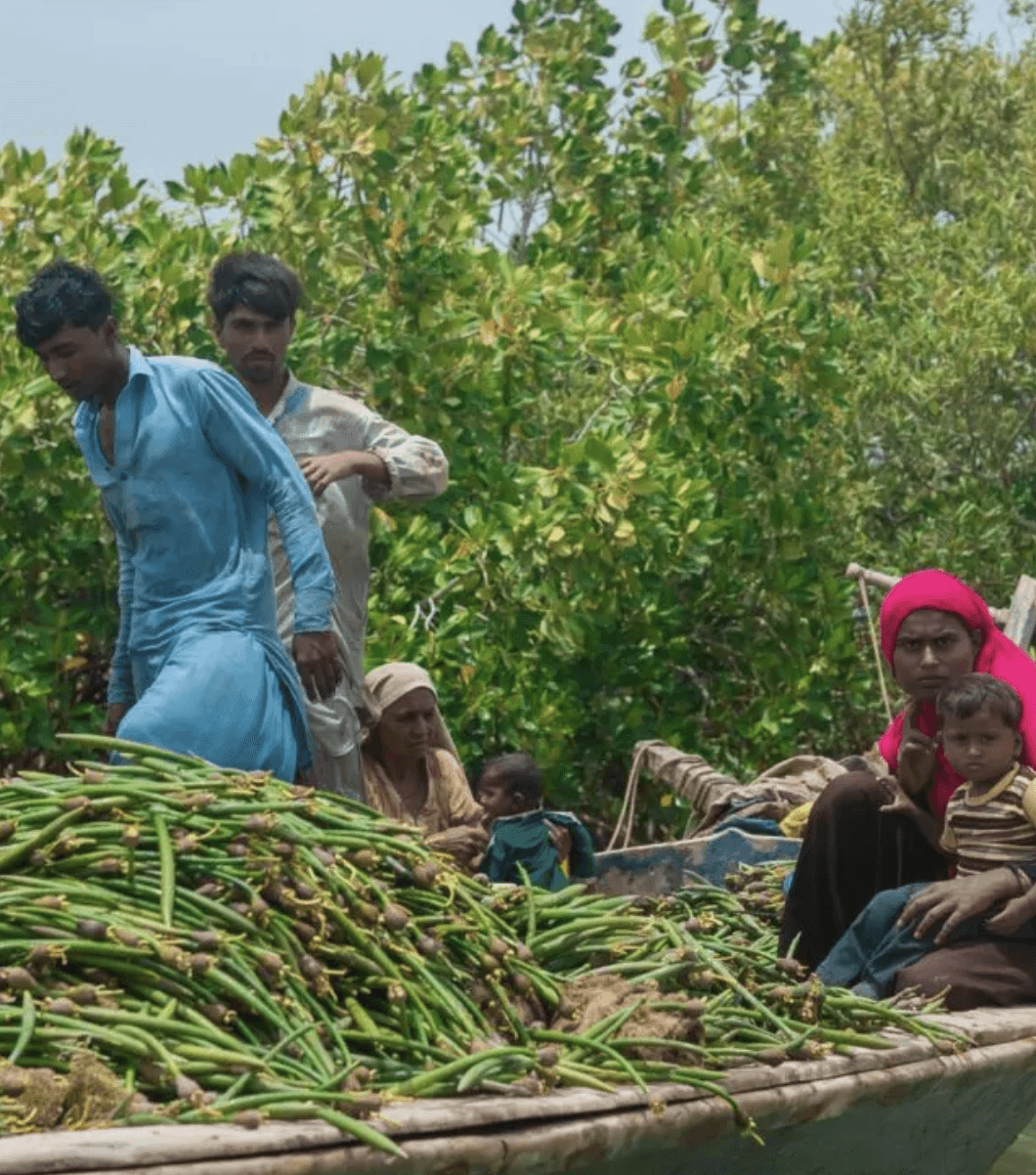Carbon removal
Supporting mangrove restoration in Pakistan
Over a number of decades, mangrove forests in the Indus Delta have experienced massive-scale deforestation and degradation due to several contributing factors. These include their use by the local communities as a source of fuelwood, fodder and open range grazing by livestock. The situation has been exacerbated by the reduced supply of fresh water and sediments into the delta area due to upstream activity.
The Delta Blue Carbon Project is an initiative to promote climate change mitigation and adaptation, maintain biodiversity and create improved livelihoods, well-being, and employment for forest-dependent communities in the Project Zone. The Project Zone is an area of 350,000 ha of the Sindh Indus Delta Region in the Thatta and Sujawal districts of Sindh Province in south-eastern Pakistan. The delta is a vast complex of tidal river channels and creeks, low-lying islands, mangrove forests and inter-tidal areas. The delta’s mangrove forests are unique in being the largest area of arid climate mangroves in the world.
Project Objectives
The project’s climate, community and biodiversity objectives include: upscaled mangrove reforestation, participatory planning and awareness raising, access to education, sustainable fisheries, access to safe drinking water and healthcare, improved protection and law enforcement, community-based business development and access to microfinance, sustainable energy development, training and capacity building of Sindh Forest Department, promotion of various gender development and income generating activities for women.
Project timeline
1 Jan 2025

Monitoring Report, 2025
The monitoring report was published earlier this year following the completion of the audit which ran from 1st March 2023 - 31st August 2024. During this Third Monitoring Period, the Project has contributed to climate change adaptation at the community and biodiversity levels, meeting the Gold Level criteria.
The strengthened mangrove ecosystem has helped maintain soil stability and prevent erosion, further safeguarding local communities and have helped protect infrastructure across 16 villages within the Project Zone.
19 Feb 2015

The Delta Blue project runs over a 60 year time period starting on 19 Feb 2015
How do we rate this project?
The project supports financial security and sustainable livelihoods for local communities, reducing their vulnerability to poverty.
By enhancing the provision of mangrove ecosystem goods, the project improves food security through sustainable fisheries and other resources.
Improved ecosystem services contribute to better air and water quality, supporting the health and well-being of local populations.
The project engages communities in education and awareness programs about mangrove conservation and sustainable practices.
Focused efforts are made to involve women in decision-making and livelihood opportunities, promoting gender equality.
Mangrove ecosystems play a role in improving water quality and maintaining coastal water supplies.
Sustainable mangrove management supports clean energy opportunities like biomass and eco-friendly resources.
The project generates sustainable job opportunities for local communities, fostering inclusive economic growth.
The project promotes inclusive economic opportunities and benefits for marginalised and forest-dependent communities, addressing social and economic inequalities.
By restoring and protecting mangroves, the project mitigates climate change through carbon sequestration and strengthens community resilience to climate-related shocks.
Mangrove restoration supports marine biodiversity, improves fisheries, and protects coastal ecosystems crucial for ocean health.
The project enhances biodiversity, preserves critical habitats, and combats land degradation in a threatened arid mangrove ecosystem.
About
Live
2021
Blue Carbon
1
2
3
4
5
6
7
8
10
13
14
15
Fund this project
Funded directly through our Carbon Removal through Blue Carbon in our marketplace. Alternatively speak to a climate expert to support your wider climate action strategy.
Verifications
Verification: Verified Carbon Standard and Climate, Community and Biodiversity Standard
This project is verified by the Verified Carbon Standard and Climate, Community and Biodiversity Standard. You can view it on the Verra Registry here.
















